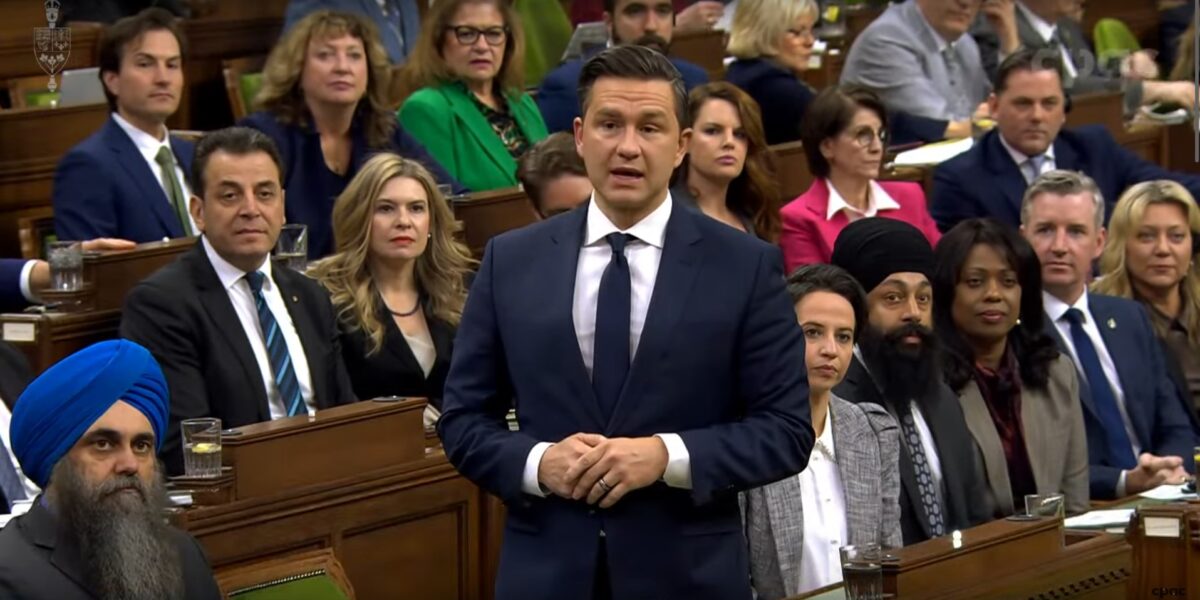Pierre Poilievre often calls Canada “broken,” but he rarely reveals that his dream Canada is an austere place that few Canadians would recognize or want to live in.
However, in an unscripted comment last month that received almost no media attention, the Conservative leader briefly provided us with a glimpse of the bleak vision he has for Canada.
“I’m very hesitant to spend taxpayers’ money on anything other than the core services of roads, bridges, police, military, border security and a safety net for those who can’t provide for themselves. That’s common sense. Let’s bring it home,” Poilievre told reporters during a campaign stop at a Vancouver gas station.
This suggests an agenda of cuts that goes well beyond axing the carbon tax.
Poilievre didn’t even mention — among his list of things he considers worthy of taxpayers’ money — Canada’s major social programs including health care, education, pensions and family supports, which are central to the lives of almost all Canadians.
Now, I doubt if Poilievre is planning to cancel or completely stop funding these programs. (Health care and education are provincial responsibilities, although they rely on funding from the federal government.)
But his comment at the gas station indicates a desire to redesign Canada in a profound way — as mostly a supplier of “core services” — infrastructure, police, the military.
As for the social dimension, he favours a bare-bones, U.S.-style “safety net” aimed only at the poor, with the rest of the population forced to provide for themselves and their families in the marketplace.
However far he is able to take us down this road, it’s alarming that this is his vision for Canada.
And, if he gets a majority, he’s likely to be swift and ambitious in cutting and privatizing. As The Star has reported, the Ford government’s apparent interest in calling an early election is partly driven by its desire to hold the election before a Poilievre government produces a first budget with deep spending cuts, tarnishing the Conservative brand.
Poilievre presents himself as a friend of the working person — but a Canadian government supplying only “core services” would mean cutbacks that hurt working people.
His agenda seems very much in line with the far-right Fraser Institute.
In a recent online article on the Hub, economists from the Fraser Institute complain that, under the Trudeau government, there has been too much redistribution from rich to poor. They point to the growth in government transfers to families, which they say have risen by 24 per cent, while the employment income of those families rose by just 8 per cent.
But this sort of “redistribution” clearly benefits ordinary Canadian families, who would be worse off if they had to get by on just their employment incomes.
Higher government spending also pays for new programs like child care, dental care, pharmacare and school lunches
The Fraser economists and Poilievre are evasive about what they’d cut, but it’s hard to imagine these social benefits fitting with an agenda wholly devoted to “core services.”
Poilievre and the Fraser crowd also oppose the Trudeau government’s plan to pay for its “redistribution” by raising taxes on wealthy Canadians who receive capital gains worth more than $250,000 a year.
Business is ramping up its campaign against this tax hike on the rich, which the Council of Canadian Innovators denounced this week as “class warfare.”
In fact, the real redistribution in recent years hasn’t been the small bit directed toward benefits for ordinary Canadians but rather the gush of money toward the wealthiest Canadians.
In 2021, the richest .01 per cent saw their incomes grow on average by a stunning 30 per cent to $12.5 million a year, while the incomes of 14 million working Canadians actually declined, according to Statistics Canada.
Or, as U.S. mega-billionaire Warren Buffett once astutely observed: “There’s class warfare, all right, but it’s my class, the rich class, that’s making war, and we’re winning.”
This article was originally published in the Toronto Star.



